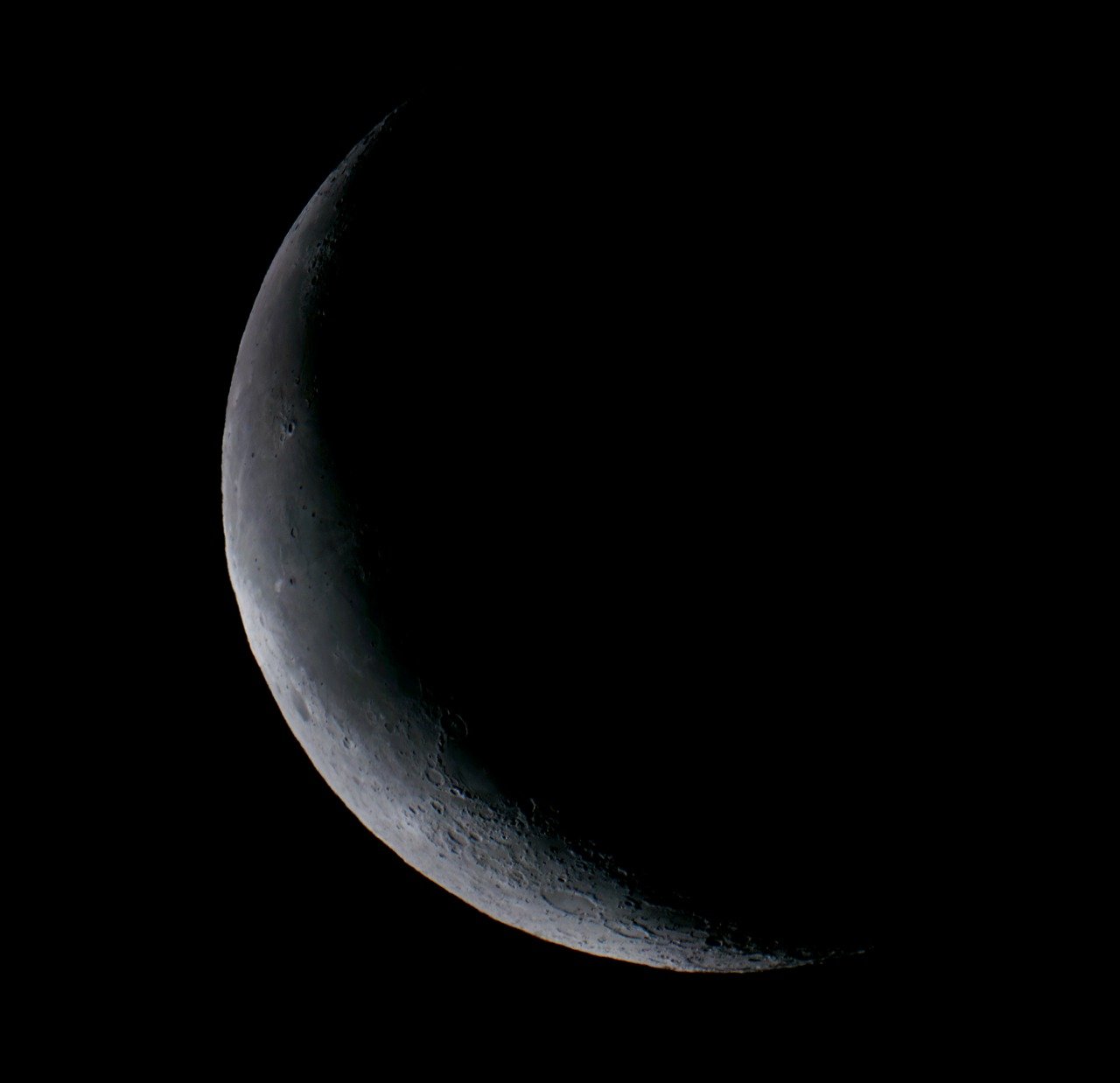Philosophy and Astronomy - Decoding the Cosmic Message
The cosmos has always been a source of wonder and mystery, prompting humanity to ponder its existence and our place within it. The intricate relationship between philosophy and astronomy serves as a fascinating lens through which we can decode the cosmic message. As we look up at the stars, we are not merely observing celestial bodies; we are engaging in a profound dialogue about existence, meaning, and the universe itself. This article explores how philosophical inquiries shape our understanding of the universe and its mysteries, revealing the deep connections that have existed for centuries.
Imagine standing under a vast night sky, feeling the weight of the universe above you. Each twinkling star represents not just a distant sun, but also a question waiting to be asked. What lies beyond? Are we alone? These questions have driven philosophers and astronomers alike to seek answers, leading to groundbreaking discoveries and profound insights. As we journey through this exploration, we will uncover the historical interplay between these two fields, examine the philosophical questions that arise from astronomical discoveries, and consider the ethical implications of our quest for knowledge.
In the age of modern science, the dialogue between philosophy and astronomy is more relevant than ever. The discoveries made by astronomers challenge our perceptions of reality and existence, prompting us to reconsider long-held beliefs. For instance, the idea of a vast universe filled with billions of galaxies raises questions about the nature of reality itself. Are we merely insignificant specks in a cosmic ocean, or do we hold a unique place in the grand tapestry of existence?
As we delve deeper into this cosmic exploration, we will also examine the ethical considerations that arise from our pursuit of knowledge. With the advent of advanced technologies, the potential for contact with extraterrestrial civilizations becomes increasingly plausible. This brings forth a myriad of ethical dilemmas that demand a thoughtful and philosophical approach. How should we conduct ourselves if we encounter other intelligent life forms? What responsibilities do we hold in our exploration of the cosmos?
Ultimately, the interplay of philosophy and astronomy enriches our understanding of the universe, urging us to seek deeper meanings within the cosmic message. As we decode the mysteries of the stars, we are not just looking outward; we are also looking inward, reflecting on our beliefs, values, and the very nature of existence itself. Join us on this journey as we explore the profound connections between these two fields, and discover how they illuminate the path to understanding our place in the universe.
- What is the relationship between philosophy and astronomy?
Philosophy and astronomy are interconnected fields that explore fundamental questions about existence, reality, and our place in the universe.
- How have historical figures influenced both fields?
Key figures such as Aristotle, Copernicus, and Galileo have shaped our understanding of the cosmos and philosophical thought throughout history.
- What ethical considerations arise in astronomical research?
Ethical dilemmas include responsibilities towards potential extraterrestrial life and the impact of our discoveries on humanity and Earth.
- What are the implications of discovering extraterrestrial life?
Discovering extraterrestrial life would challenge our understanding of consciousness, intelligence, and humanity's unique place in the universe.

The Historical Interplay of Philosophy and Astronomy
Throughout history, the relationship between philosophy and astronomy has been a fascinating journey, marked by the contributions of brilliant minds who sought to understand the cosmos. From the ancient Greeks to modern scientists, the interplay of these two fields has shaped our understanding of the universe and our place within it. Think about it: how often do we ponder the stars and the vastness of space, and how many of those thoughts are influenced by philosophical inquiry?
In ancient times, philosophers like Plato and Aristotle laid the groundwork for astronomical thought, intertwining their philosophical beliefs with their understanding of celestial bodies. For instance, Plato believed in a perfect, unchanging realm of forms, which influenced his view of the heavens as a reflection of that perfection. Aristotle, on the other hand, proposed a geocentric model of the universe, where Earth was at the center, surrounded by celestial spheres. This model dominated for centuries, showcasing how philosophical perspectives can shape scientific understanding.
As we moved into the Renaissance, figures like Copernicus and Galileo began to challenge the long-held beliefs of their predecessors. The heliocentric model proposed by Copernicus, which placed the Sun at the center of the universe, was a revolutionary idea that not only altered astronomical studies but also had profound philosophical implications. It forced humanity to reconsider its place in the cosmos. Galileo's use of the telescope further transformed our understanding, revealing moons orbiting Jupiter and challenging the notion of an Earth-centric universe.
Fast forward to the 20th century, and we see the emergence of Einstein's theory of relativity, which introduced a new way of thinking about space and time. This theory not only revolutionized astronomy but also sparked philosophical debates about the nature of reality itself. Questions arose about the fabric of the universe, the concept of time, and how we perceive existence. The relationship between philosophy and astronomy continued to evolve, with each field informing and challenging the other.
| Era | Philosopher/Astronomer | Key Contributions |
|---|---|---|
| Ancient Greece | Plato | Concept of perfect forms influencing celestial understanding |
| Ancient Greece | Aristotle | Geocentric model of the universe |
| Renaissance | Copernicus | Heliocentric model revolutionizing astronomy |
| Renaissance | Galileo | Use of telescope to challenge existing beliefs |
| 20th Century | Einstein | Theory of relativity altering perceptions of space and time |
The relationship between philosophy and astronomy is not merely historical; it continues to influence contemporary discussions about the universe. Today, as we explore concepts like the Big Bang and dark matter, philosophical questions about existence, purpose, and the nature of reality remain at the forefront. Are we alone in the universe? What does it mean to exist in a cosmos that seems indifferent to our presence? These questions echo the inquiries of our ancestors, showing that the quest for understanding is timeless.
In conclusion, the historical interplay between philosophy and astronomy reveals a rich tapestry of thought that has evolved over millennia. Each discovery in astronomy has opened new avenues for philosophical inquiry, prompting us to reflect on our place in the universe. As we continue to explore the cosmos, we must remember that the questions we ask are just as important as the answers we seek.
- How did ancient philosophers influence astronomy? Ancient philosophers laid the groundwork for astronomical thought by intertwining their beliefs with celestial observations.
- What was the significance of the heliocentric model? The heliocentric model challenged long-held beliefs about Earth's position in the universe, prompting a reevaluation of humanity's place in the cosmos.
- How do modern discoveries in astronomy affect philosophical thought? Modern discoveries continue to raise profound questions about existence, reality, and our understanding of the universe.

Philosophical Questions in Astronomy
When we gaze up at the vast expanse of the night sky, we're not just looking at stars and planets; we are confronted with some of the most profound philosophical questions that humanity has ever grappled with. Astronomy, the science of celestial bodies, often intertwines with philosophy, challenging us to ponder the very nature of existence and our place within the cosmos. Have you ever wondered what it means to exist in a universe so grand and seemingly indifferent? These questions can feel overwhelming, yet they are essential for understanding our role in the vast tapestry of the universe.
One major question that arises from our astronomical explorations is the nature of existence itself. As we discover more about the universe, we begin to understand that our existence may be just a tiny blip in the grand timeline of cosmic history. This leads us to ponder: if there are countless galaxies, each teeming with stars and possibly planets, what does it mean for us to be here? Are we merely a coincidence, or is there a greater purpose behind our existence? Philosophers like Immanuel Kant have suggested that our understanding of the universe is limited by our perceptions, which raises the question of whether we can ever truly grasp the full scope of reality.
Another intriguing aspect of astronomy is the possibility of extraterrestrial life. The search for life beyond Earth is not just a scientific endeavor; it is a deeply philosophical quest that challenges our understanding of consciousness and intelligence. If we were to discover life on another planet, it would force us to reconsider what it means to be human. Would we view ourselves as the pinnacle of evolution, or merely one of many forms of life in the universe? This question invites us to explore the ethical implications of such a discovery as well. How would we interact with these beings? Would we have a responsibility to protect them, or would our instinct be to dominate?
In addition to these existential inquiries, the role of observation in astronomy also raises philosophical questions about knowledge and perception. As we utilize advanced telescopes and technology to observe distant galaxies, we must ask ourselves: how does our ability to see and measure the universe shape our understanding of it? Are we truly seeing the universe as it is, or merely interpreting it through the lens of our human experience? This brings us to the concept of cosmic indifference, which posits that the universe operates independently of human concerns. If the cosmos is indifferent to our existence, what does that mean for our search for meaning and purpose in life?
Ultimately, these philosophical questions serve as a reminder that the universe is not just a collection of stars and planets; it is a profound mystery that invites us to explore our own beliefs, values, and understandings of existence. The interplay between philosophy and astronomy encourages us to delve deeper, seeking answers to questions that may never be fully resolved but are essential for our growth as individuals and as a species.
- What is the relationship between philosophy and astronomy?
Philosophy and astronomy intersect in their exploration of fundamental questions about existence, knowledge, and the nature of reality. - How do astronomical discoveries influence philosophical thought?
New astronomical discoveries challenge our perceptions and often lead to reevaluating our understanding of existence and our place in the universe. - What ethical considerations arise from the search for extraterrestrial life?
The search for extraterrestrial life raises questions about our responsibility toward other forms of life and the potential impact of our actions on their existence.

The Nature of Reality
The cosmos is a vast tapestry woven with threads of mystery and wonder, challenging our perceptions of what is real and what is merely a figment of our imagination. When we gaze up at the night sky, we often find ourselves pondering profound questions: What is reality? Are we just tiny specks in an infinite universe, or is there more to our existence? These inquiries have been at the heart of philosophical thought, especially as astronomical discoveries have expanded our understanding of the universe.
Consider the phenomenon of black holes, for instance. These enigmatic regions of space warp the very fabric of reality, bending light and time itself. They force us to reconsider our basic assumptions about existence. Are black holes merely cosmic vacuum cleaners, or do they hold the key to understanding the fundamental nature of reality? This leads us to the philosophical interpretation of the cosmos, where questions about existence and perception become intertwined.
In the realm of astronomy, observation plays a crucial role. Through telescopes and advanced technology, we can peer into the depths of space, yet what we observe is often filtered through the lens of our understanding. This brings us to the philosophical implications of knowledge and perception. How do we know what we know? Is our understanding of the universe shaped by the limitations of our senses, or is there an objective reality that exists independent of our perception? These questions echo through the halls of both philosophy and science, creating a dialogue that enriches our comprehension of the universe.
Moreover, the concept of cosmic indifference raises another layer of complexity. The universe operates on its own terms, indifferent to human existence. This perspective can be both liberating and daunting. It invites us to reflect on our place in the cosmos and the significance we assign to our lives. Are we the center of the universe, or are we merely observers in a grand narrative that unfolds without regard for our individual stories? The philosophical implications of cosmic indifference challenge us to find meaning in a universe that does not inherently provide it.
To summarize, the nature of reality as shaped by astronomical phenomena invites us to explore the depths of existence, perception, and meaning. It is a journey that intertwines science and philosophy, urging us to question our assumptions and embrace the mysteries of the cosmos. As we continue to unravel the secrets of the universe, we may find that the answers we seek lie not just in the stars, but within ourselves.
- What is the relationship between philosophy and astronomy? Philosophy and astronomy intersect in their exploration of existence, knowledge, and the nature of reality, prompting profound questions about our universe.
- How do astronomical discoveries influence philosophical thought? Discoveries in astronomy challenge our perceptions and lead to new philosophical inquiries about existence, reality, and our place in the cosmos.
- What is cosmic indifference? Cosmic indifference refers to the idea that the universe operates independently of human concerns, prompting reflections on meaning and purpose.

The Role of Observation
Observation is the cornerstone of both astronomy and philosophy, acting as a bridge that connects the two disciplines in a profound way. When we gaze at the night sky, we are not merely looking at distant stars and galaxies; we are engaging in a form of inquiry that has shaped human thought for centuries. Each twinkling star is a reminder of our quest for understanding, urging us to ask questions that probe the very essence of existence. How do we know what we know? What can we truly observe, and how does that shape our perception of reality?
In astronomy, observation is not just about collecting data; it's about interpreting that data through a philosophical lens. The instruments we use—telescopes, spectrometers, and even satellites—are extensions of our senses, allowing us to perceive the universe in ways that our naked eyes cannot. Yet, the act of observation is inherently subjective. Two astronomers may look at the same celestial event and draw entirely different conclusions based on their philosophical beliefs and prior knowledge. This subjectivity raises intriguing questions: Is our understanding of the universe limited by our observational tools, or is it shaped more by our interpretations of what we see?
Consider the following aspects of observation in astronomy:
- Empirical Evidence: The foundation of scientific inquiry, where observations lead to hypotheses and theories.
- Philosophical Interpretation: The need to interpret empirical data through philosophical frameworks, which can vary widely among cultures and thinkers.
- Technological Advancements: How improvements in observational technology have expanded our understanding of the cosmos, yet also introduced new philosophical dilemmas.
Moreover, the role of observation extends beyond mere data collection; it compels us to confront our limitations as observers. The vastness of the universe often evokes a sense of cosmic humility. Are we merely insignificant specks in an indifferent cosmos, or do our observations hold intrinsic value? This existential inquiry is where philosophy deeply intertwines with astronomy. The questions we ask as we observe the heavens can lead us to profound insights about our own existence and the nature of reality itself. Observational astronomy thus becomes a mirror reflecting not just the universe, but also our place within it.
In essence, observation in astronomy is a dance between the empirical and the philosophical. It challenges us to think critically about what we see and how we interpret it. As we continue to push the boundaries of our observational capabilities, we must also grapple with the philosophical implications of our discoveries. Each observation is a step toward understanding not just the cosmos, but also the very nature of knowledge and existence.
- What is the significance of observation in astronomy? Observation allows astronomers to gather data about celestial bodies, which is essential for forming theories and understanding the universe.
- How does philosophy influence astronomical observations? Philosophy shapes how we interpret observations, guiding questions about existence, reality, and our place in the universe.
- Can observation be subjective? Yes, different observers may interpret the same data in various ways based on their philosophical perspectives and experiences.
- What role does technology play in observation? Technological advancements enhance our observational capabilities, leading to new discoveries and raising fresh philosophical questions.

Cosmic Indifference
The concept of is a profound philosophical inquiry that challenges our understanding of humanity’s place in the universe. Imagine standing on a beach, gazing at the vast ocean; the waves crash relentlessly, indifferent to your presence. This metaphor encapsulates the essence of cosmic indifference—an immense universe that operates on its own terms, often without regard for human existence. The stars shine, planets spin, and galaxies collide, all while we ponder our significance in this grand cosmic tapestry.
At the heart of this philosophical exploration lies a stark realization: the universe does not cater to our desires or fears. It simply exists. This idea can be both liberating and unsettling. On one hand, it frees us from the burden of believing that we are the center of existence. On the other hand, it raises existential questions about meaning and purpose. If the universe is indifferent, what does that mean for our lives? Are we mere specks of dust in a vast, uncaring cosmos?
Philosophers throughout history have grappled with these questions. Thinkers like Albert Camus and Friedrich Nietzsche have examined how this indifference influences our quest for meaning. Camus, for instance, proposed the idea of the absurd hero, someone who acknowledges the lack of inherent meaning in life yet continues to seek personal significance. This perspective encourages us to create our own meaning, even in a universe that seems to offer none.
Furthermore, cosmic indifference can lead to a sense of humility. When we consider the vastness of the universe—over 100 billion galaxies, each containing millions or billions of stars—our individual troubles and achievements seem minuscule. This realization can foster a greater appreciation for the beauty of existence itself. Rather than feeling disheartened by our insignificance, we can embrace the idea that we are part of something much larger than ourselves.
Yet, the implications of cosmic indifference extend beyond individual introspection. They invite us to reflect on our responsibilities as stewards of Earth. If the universe is indifferent to our existence, how should we treat one another and our planet? This leads to crucial ethical considerations, especially in how we approach scientific discoveries and technological advancements. Are we, as a species, prepared to handle the knowledge and power that come with understanding the cosmos?
In conclusion, cosmic indifference serves as a powerful reminder of our place in the universe. It challenges us to confront uncomfortable truths about existence while also inspiring us to seek meaning in our lives. As we navigate through the complexities of life, let us remember that while the universe may not care, we have the power to create our own significance and to treat each other with compassion and respect.
- What is cosmic indifference? Cosmic indifference refers to the idea that the universe operates without regard for human existence, prompting philosophical inquiries about meaning and purpose.
- How does cosmic indifference affect our sense of meaning? It challenges us to create our own meaning in life, rather than relying on an external source for significance.
- Who are some philosophers that have discussed cosmic indifference? Philosophers like Albert Camus and Friedrich Nietzsche have explored the implications of cosmic indifference in their works.
- What are the ethical implications of cosmic indifference? It raises questions about our responsibilities towards one another and the environment, given that the universe does not inherently provide meaning.

Ethics in Astronomy
As we venture deeper into the cosmos, the ethical considerations surrounding astronomical research become increasingly significant. Astronomy, while often perceived as a purely scientific pursuit, is deeply intertwined with ethical questions that challenge our moral compass. For instance, as we develop advanced technologies to explore distant planets and celestial bodies, we must grapple with the responsibilities that come with such capabilities. Are we stewards of the universe or mere explorers? This question is not just philosophical; it has real-world implications for how we conduct our research and how we interact with potential extraterrestrial environments.
Moreover, the search for extraterrestrial life poses profound ethical dilemmas. If we were to discover microbial life on Mars or intelligent civilizations in distant galaxies, what would our responsibilities be? Would we have the right to interfere with their ecosystems? The potential for contamination—both ways—raises serious ethical concerns. As we push the boundaries of our knowledge, we must ensure that our actions do not lead to unintended consequences for these otherworldly environments. This is where the intersection of ethics and astronomy becomes a critical dialogue.
In addition, the concept of cosmic colonialism has emerged as a significant concern. As humanity looks to the stars, there is a risk of repeating the mistakes of our past, where exploration led to exploitation. The ethical implications of claiming celestial bodies or resources must be addressed. Should we treat other planets as new frontiers for human expansion, or should we adopt a more respectful approach that acknowledges their intrinsic value? These questions require a thoughtful examination of our motivations and the potential impact of our actions.
To navigate these complex ethical landscapes, astronomers and scientists must engage in open discussions about their responsibilities. They should consider establishing ethical guidelines that govern space exploration. Here are some key points that could be included in such guidelines:
- Respect for Cosmic Environments: Prioritize the preservation of celestial bodies and ecosystems.
- Transparency in Research: Maintain open communication about the goals and methods of astronomical research.
- Collaboration with Philosophers: Work alongside ethicists to address moral dilemmas in exploration.
- Public Engagement: Involve the public in discussions about the implications of space exploration.
Ultimately, the ethics of astronomy remind us that our quest for knowledge is not just about uncovering the mysteries of the universe; it’s also about understanding our place within it. The cosmos may be vast and indifferent, but our approach to exploring it should be grounded in a sense of responsibility and respect. As we stand on the brink of new discoveries, let us ensure that our journey into the stars is guided by an ethical framework that honors both our humanity and the universe we seek to understand.
Q: What ethical concerns arise from space exploration?
A: Ethical concerns include the potential contamination of extraterrestrial environments, cosmic colonialism, and the responsibilities we hold towards any discovered life forms.
Q: How can astronomers address ethical dilemmas?
A: Astronomers can establish ethical guidelines, engage in discussions with ethicists, and maintain transparency in their research to navigate ethical dilemmas.
Q: Why is public engagement important in astronomical ethics?
A: Public engagement fosters a broader understanding of the implications of space exploration and encourages collective responsibility in our approach to the cosmos.

Cosmology and Metaphysics
When we think about the universe, we often find ourselves standing at the crossroads of cosmology and metaphysics. Cosmology, the scientific study of the universe's origins and structure, seeks to answer fundamental questions about how everything came to be. Meanwhile, metaphysics dives into the philosophical implications of those answers, exploring the nature of reality, existence, and the very essence of being. Together, these fields create a tapestry of inquiry that challenges our understanding of not just the universe, but our place within it.
One of the most profound intersections between cosmology and metaphysics is the exploration of creation myths. Throughout history, various cultures have developed their own narratives to explain the origins of the universe. These myths often reflect the values and beliefs of the societies that created them. In contrast, scientific theories such as the Big Bang provide a framework based on empirical evidence and mathematical models. However, the question remains: how do these scientific explanations align or conflict with ancient narratives? The table below illustrates some prominent creation myths alongside the Big Bang theory:
| Creation Myth | Key Elements | Comparison to Big Bang Theory |
|---|---|---|
| Genesis (Judeo-Christian) | Creation in six days, God as creator | Suggests a purposeful creation versus a random event |
| Hinduism (Brahma) | Cosmic egg, cyclical creation | Aligns with the idea of a universe that expands and contracts |
| Big Bang Theory | Expansion from a singularity, cosmic microwave background | Scientific explanation based on observable phenomena |
Furthermore, the concept of the multiverse theory adds another layer of complexity to the relationship between cosmology and metaphysics. Imagine a vast ocean of universes, each with its own distinct laws of physics and realities. This idea challenges our understanding of existence itself. If there are infinite universes, what does that mean for our notion of reality? Are we just one of many, or is there something uniquely significant about our universe? Philosophically, this leads to questions about identity, consciousness, and the very fabric of existence.
As we delve deeper into these discussions, we realize that the questions posed by cosmology are not merely scientific; they are profoundly philosophical. They compel us to examine our beliefs about existence, the nature of reality, and our role in the grand scheme of things. The interplay between cosmology and metaphysics encourages a holistic understanding of the universe, prompting us to seek answers that transcend mere observation and delve into the realms of meaning and purpose.
- What is the main difference between cosmology and metaphysics? Cosmology focuses on the scientific study of the universe, while metaphysics explores the philosophical implications of those scientific findings.
- How do creation myths influence our understanding of cosmology? Creation myths provide cultural and historical perspectives that can shape our interpretations of scientific theories like the Big Bang.
- What is the significance of the multiverse theory? It challenges our traditional notions of reality and existence, suggesting that there may be many universes beyond our own.

The Big Bang and Creation Myths
The concept of the Big Bang is not just a scientific theory; it’s a profound idea that challenges our very understanding of existence. Imagine the universe starting from a singular point, a tiny dot that exploded into the vast cosmos we see today. This explosive beginning raises significant questions about creation, existence, and the nature of reality itself. But, how does this scientific narrative compare with the rich tapestry of creation myths found in various cultures around the world? Are they merely stories, or do they hold deeper truths that resonate with our quest for understanding?
Throughout history, cultures have crafted their own explanations of the universe’s origins, often filled with symbolism and meaning. For instance, in many Indigenous cultures, creation stories are not just about how the world came to be but also about the relationship between humanity and the cosmos. These myths often feature gods or supernatural beings who shape the world, reflecting the values and beliefs of the society that tells them. Here are a few notable examples:
- The Genesis Creation Narrative: In the Judeo-Christian tradition, the Book of Genesis describes God creating the world in six days, culminating in the creation of humanity. This narrative emphasizes a purposeful creation.
- The Hindu Cosmology: Hindu texts describe a cyclical universe where creation and destruction are part of an eternal cycle, with gods like Brahma playing a pivotal role in creation.
- The Big Bang Theory: Contrastingly, the scientific explanation posits that the universe expanded from an incredibly hot and dense state, evolving over billions of years through natural processes.
When we juxtapose these creation myths with the Big Bang theory, intriguing philosophical implications arise. For instance, both narratives seek to answer the fundamental question: “Where do we come from?” However, they do so from different perspectives—one rooted in spirituality and mythology, the other in empirical science. This divergence leads us to ponder whether these narratives can coexist or if one must ultimately overshadow the other.
Furthermore, the Big Bang theory invites us to reconsider the concept of time and existence. If the universe had a beginning, what does that say about the nature of time itself? Philosophers like Aristotle once argued that time is eternal, yet the Big Bang suggests a starting point. This contradiction leads to an exploration of metaphysical questions about the universe's structure and the nature of existence. Are we merely products of chance, or is there an underlying purpose to our existence?
In conclusion, the dialogue between the Big Bang theory and various creation myths enriches our understanding of the universe. It encourages us to reflect on our origins and the stories we tell ourselves about our place in the cosmos. Each narrative—scientific or mythological—offers unique insights, prompting us to explore deeper meanings and ultimately, the cosmic message that binds us all.
- What is the Big Bang theory?
The Big Bang theory is the leading scientific explanation for the origin of the universe, proposing that it began as a singular point and has been expanding ever since.
- How do creation myths differ from scientific explanations?
Creation myths often involve supernatural elements and cultural values, while scientific explanations rely on empirical evidence and observations.
- Can scientific theories and creation myths coexist?
Yes, many people find value in both perspectives, using science to understand the physical universe while drawing on myths for cultural and spiritual meaning.

The Multiverse Theory
The Multiverse Theory is one of the most fascinating and perplexing concepts in modern cosmology. It suggests that our universe is just one of many, perhaps infinitely many, universes that exist simultaneously. Imagine standing in front of a vast library, where each book represents a different universe with its own set of physical laws, constants, and histories. This idea not only challenges our understanding of reality but also invites profound philosophical questions about existence itself.
At its core, the Multiverse Theory emerges from several scientific frameworks, including quantum mechanics and string theory. In quantum mechanics, the concept of superposition implies that particles can exist in multiple states at once. When we apply this to the universe, it leads to the notion that every possible outcome of a quantum event could create a new universe. This means that for every decision you make, another universe exists where you made a different choice. It's a mind-bending idea that raises questions about free will and predestination.
Moreover, the Multiverse Theory has significant implications for our understanding of reality. If there are countless universes, what does that mean for our own? Are we uniquely special in this vast tapestry, or are we just one of many? This perspective can be both humbling and exhilarating. It challenges the anthropocentric view that humans are the center of the universe, suggesting instead that our existence might be just a fleeting moment in an infinite cosmic play.
Philosophically, the Multiverse Theory raises questions that are both exciting and daunting:
- What is the nature of reality? If multiple universes exist, how do we define what is "real"? Is our universe merely a bubble in a vast ocean of realities?
- Do these universes have their own forms of life? If so, what would their consciousness and experiences be like? Would they mirror ours, or would they be entirely alien?
- What does this mean for the concept of God? In a multiverse, how does one reconcile the existence of a creator with the idea of infinite realities?
In addition, the Multiverse Theory invites us to reconsider our place in the cosmos. If there are infinite versions of ourselves living out different lives in alternate realities, what does that say about our choices and experiences? Are we merely a product of chance, or is there a deeper significance to our existence? This leads to a profound exploration of identity and the essence of being.
Despite its intriguing nature, the Multiverse Theory is not without its criticisms. Some argue that it lacks empirical evidence, making it more of a philosophical speculation than a scientific theory. Others contend that if every possibility exists in some universe, then the theory becomes unfalsifiable, challenging the very foundation of scientific inquiry. Nevertheless, it continues to inspire debate and discussion, pushing the boundaries of both science and philosophy.
As we delve deeper into the mysteries of the universe, the Multiverse Theory serves as a reminder of the vastness of existence and the myriad possibilities that lie beyond our understanding. It encourages us to ponder not just the cosmos, but our own existence within it, inviting us to explore the cosmic message that resonates through every universe.
- What is the Multiverse Theory? The Multiverse Theory posits that there are multiple, perhaps infinite, universes that exist parallel to our own, each with its own unique properties and laws.
- How does the Multiverse Theory relate to quantum mechanics? The theory arises from the implications of quantum mechanics, particularly the idea that every quantum event could create a new universe with different outcomes.
- What are the philosophical implications of the Multiverse Theory? It challenges our understanding of reality, existence, and the nature of choice, suggesting that our experiences may be just one of many possible lives.
- Is there any empirical evidence for the Multiverse Theory? Currently, the Multiverse Theory lacks direct empirical evidence, leading to debates about its scientific validity.

Astrobiology and the Search for Life
Astrobiology is an exhilarating field that merges biology, chemistry, and astronomy to explore one of humanity's most profound questions: Are we alone in the universe? This inquiry is not merely a scientific endeavor; it is a philosophical journey that challenges our understanding of life itself. As we venture into the cosmos, the search for extraterrestrial life compels us to reconsider our place in the grand tapestry of existence. The implications of discovering life beyond Earth could fundamentally alter our worldview, prompting questions about consciousness, intelligence, and the very definition of life.
When we think about the vastness of the universe, it’s hard not to feel a sense of awe and wonder. With billions of galaxies, each containing millions or even billions of stars, the potential for life seems almost inevitable. But what does it mean if we find life elsewhere? Would it be microbial, or could it be intelligent? How would we communicate with such beings? These questions are not just the stuff of science fiction; they are at the heart of astrobiological research and philosophical inquiry.
To understand the implications of our search for extraterrestrial life, we must consider several key aspects:
- The Nature of Life: What constitutes life? Is it merely a biochemical process, or is there something more profound at play?
- Consciousness and Intelligence: If we encounter intelligent life, how do we define consciousness? Would it be similar to ours, or entirely different?
- Humanity’s Place in the Universe: Discovering extraterrestrial life could either elevate our sense of importance or diminish it. How would that affect our self-perception?
Moreover, astrobiology also raises ethical considerations about how we approach potential contact with extraterrestrial civilizations. The prospect of interacting with intelligent life forms introduces a myriad of dilemmas:
- Responsibility: What ethical obligations do we have to protect extraterrestrial ecosystems?
- Communication: How do we ensure that our attempts at contact are respectful and meaningful?
- Impact: What are the potential consequences of introducing Earth-based life forms to alien environments?
As scientists utilize advanced technologies to search for biosignatures on exoplanets or explore our own solar system's moons, such as Europa and Enceladus, we are reminded that the search for life is not just about finding it; it's about understanding what it means to be alive in the universe. The philosophical implications are immense, as they challenge us to think beyond our terrestrial experiences and consider life in all its possible forms.
In essence, astrobiology is not just a scientific pursuit; it is a profound exploration of existence itself. Each discovery we make in this field invites us to reflect on our own lives, our values, and our responsibilities as stewards of Earth. As we look to the stars, we may find that the quest for extraterrestrial life is also a quest for understanding ourselves.
Q1: What is astrobiology?
Astrobiology is the study of life in the universe, including the origins, evolution, distribution, and future of life on Earth and beyond.
Q2: Why is the search for extraterrestrial life important?
The search for extraterrestrial life is important because it helps us understand our own existence, the potential for life elsewhere, and the ethical implications of our actions in the universe.
Q3: What are the main methods used in astrobiological research?
Astrobiological research employs various methods, including the study of extreme environments on Earth, the analysis of data from space missions, and the search for biosignatures on exoplanets.
Q4: How would the discovery of extraterrestrial life affect humanity?
The discovery of extraterrestrial life could significantly impact humanity's perspective on itself, potentially altering our beliefs about our uniqueness, purpose, and responsibilities in the cosmos.

Implications of Discovering Extraterrestrial Life
The discovery of extraterrestrial life would be nothing short of a paradigm shift in our understanding of the universe and our place within it. Imagine waking up one day to the news that we are not alone, that there are other forms of life out there, perhaps even civilizations with their own cultures, technologies, and philosophies. This revelation would not only challenge our scientific frameworks but also provoke deep philosophical inquiries about consciousness, intelligence, and what it means to be “alive.”
First and foremost, the implications of such a discovery would extend into the realm of identity. Who are we, if there are others like us—or perhaps vastly different from us? This question beckons us to reconsider our definitions of humanity. Are we unique, or merely one of many? Philosophers and scientists alike would need to grapple with the ontological status of these extraterrestrial beings. Are they sentient? Do they possess rights? How do we categorize their existence in relation to our own?
Furthermore, the discovery would likely ignite debates surrounding ethics. The ethical considerations of interacting with extraterrestrial life are profound. Should we attempt to communicate or establish contact? What responsibilities do we have towards these beings? As we ponder these questions, we might create a framework that includes:
- Respect for their autonomy and existence
- Consideration of potential risks or consequences of contact
- Understanding the implications of sharing knowledge or technology
In addition to ethical dilemmas, the discovery of extraterrestrial life could also lead to a revolution in science and technology. New technologies may emerge from the need to communicate with or study these beings. This could lead to advancements in fields such as astrophysics, biotechnology, and even philosophy itself. The methodologies we develop to explore the cosmos could fundamentally alter how we approach scientific inquiry on Earth.
Moreover, the philosophical implications would extend to our understanding of existentialism. If life exists elsewhere, it raises questions about the meaning of life on Earth. Are we merely a cosmic accident, or do we have a purpose in the grand tapestry of the universe? This could lead to a renaissance in philosophical thought, as we seek to find meaning in a universe that is suddenly much larger and more complex than we previously imagined.
Lastly, the discovery of extraterrestrial life would undoubtedly influence our cultural narratives. Literature, art, and media would likely reflect this new reality, sparking creativity and new forms of expression. Just as the Copernican Revolution shifted our view of the cosmos, the acknowledgment of other life forms could inspire a new wave of cultural introspection and innovation.
In conclusion, the implications of discovering extraterrestrial life are vast and multifaceted. From redefining our identity to grappling with ethical responsibilities, the impact on science, philosophy, and culture would be profound. As we stand on the brink of such a discovery, we must prepare ourselves to answer questions that could reshape our understanding of existence itself.
- What would be the first steps after discovering extraterrestrial life?
Initial steps would likely include scientific verification and establishing communication protocols, while also considering ethical guidelines for interaction.
- How would this discovery affect religion and spirituality?
Many religions may need to reevaluate their teachings, while new spiritual movements could emerge, focusing on a cosmic perspective.
- What challenges would scientists face in studying extraterrestrial life?
Challenges could include technological limitations, ethical considerations, and the need for interdisciplinary collaboration.

Ethical Considerations in Contact
When it comes to the prospect of contacting extraterrestrial civilizations, the ethical considerations are as vast as the universe itself. Imagine, for a moment, the excitement and fear that would accompany such a monumental discovery. Would we be ready to face the implications of communicating with beings from another world? The reality is that this is not just a scientific endeavor; it’s a profound moral dilemma that requires careful thought and philosophical reflection.
One of the primary ethical concerns revolves around the potential impact of contact on both humanity and the extraterrestrial civilization. We must ask ourselves: What responsibilities do we have towards these beings? If we were to make contact, how would our actions affect their society, culture, and environment? Just as we grapple with the consequences of our actions on Earth, we must also consider the ripple effects our contact could have across the cosmos.
Moreover, the question of consent arises. If we were to reach out to an extraterrestrial civilization, would they even want to engage with us? It's crucial to recognize that we cannot assume that they would welcome our presence or our messages. This leads us to ponder the ethical implications of imposing our will upon another intelligent species. As we navigate this uncharted territory, we should establish a framework that respects the autonomy and agency of these potential extraterrestrial beings.
Additionally, we must reflect on our own motivations for making contact. Are we driven by a genuine curiosity and desire for knowledge, or is it a quest for power and dominance? The history of human exploration is littered with examples of exploitation and colonization, where the more advanced civilization imposed its will upon those it deemed "lesser." To avoid repeating these mistakes, we must approach the idea of contact with humility and a commitment to ethical principles.
In light of these considerations, it becomes evident that we need a robust ethical framework. This framework should address various aspects of potential contact, including:
- Respect for Autonomy: Acknowledging the rights and independence of extraterrestrial civilizations.
- Environmental Responsibility: Ensuring that our actions do not harm their ecosystems.
- Cultural Sensitivity: Being mindful of the potential cultural differences and values of the extraterrestrial beings.
- Transparency: Open communication about our intentions and the potential consequences of contact.
In conclusion, the ethical considerations surrounding contact with extraterrestrial life are complex and multifaceted. As we stand on the brink of a new era in our understanding of the cosmos, it is imperative that we engage in thoughtful dialogue and philosophical inquiry. After all, the decisions we make now could shape not only our future but also the future of other intelligent beings in the universe.
- What are the main ethical concerns regarding contact with extraterrestrial life? The main concerns include the impact on the extraterrestrial civilization, the question of consent, and our own motivations for making contact.
- How can we ensure that our actions are ethical? By establishing a robust ethical framework that respects the autonomy and rights of extraterrestrial beings, and by being transparent about our intentions.
- What historical examples can inform our approach to extraterrestrial contact? The history of human exploration and colonization offers valuable lessons about the consequences of imposing our will on other cultures and societies.

Conclusion: The Cosmic Message
As we draw the curtain on our exploration of the intricate relationship between philosophy and astronomy, it's clear that the universe is not just a vast expanse of stars and planets; it is a profound source of questions and insights that challenge our very existence. The interplay of these two fields has illuminated our understanding of the cosmos, revealing that our quest for knowledge is as much about the questions we ask as it is about the answers we find. Just like a cosmic puzzle, each piece contributes to a greater picture, prompting us to reflect on our place in the grand scheme of things.
Throughout history, thinkers have gazed at the stars and wondered about the nature of reality, existence, and our role in the universe. This journey is not merely scientific; it is deeply philosophical. The cosmos whispers secrets that beckon us to explore questions such as: What does it mean to exist? Are we alone in this vast universe? And if we are not, what does that mean for humanity?
Moreover, the ethical considerations that arise from our astronomical endeavors cannot be overlooked. As we push the boundaries of our understanding, we must also navigate the responsibilities that come with it. Whether it's the implications of discovering extraterrestrial life or the impact of our actions on Earth, the cosmic message is clear: we must tread carefully, guided by a moral compass that reflects our shared humanity.
In essence, the relationship between philosophy and astronomy enriches our understanding of the universe by prompting us to seek deeper meanings within the cosmic message. It encourages us to ponder the unknown and embrace the mysteries that lie beyond our reach. As we continue to explore the stars, let us do so with a sense of wonder, humility, and a commitment to understanding not just the universe, but ourselves.
- What is the relationship between philosophy and astronomy?
Philosophy and astronomy are intertwined as they both seek to understand the nature of existence, reality, and our place in the universe. Philosophical questions often arise from astronomical discoveries, prompting deeper inquiry. - How does astronomy influence philosophical thought?
Astronomy challenges our perceptions of reality and existence, leading to philosophical interpretations that explore the implications of cosmic phenomena. - What ethical considerations arise in astronomical research?
Ethics in astronomy includes responsibilities regarding the exploration of the cosmos, the potential impact on Earth, and the moral implications of discovering extraterrestrial life. - What are the philosophical implications of discovering extraterrestrial life?
Discovering extraterrestrial life raises profound questions about consciousness, intelligence, and humanity's place in the universe, challenging our understanding of existence.
Frequently Asked Questions
- What is the relationship between philosophy and astronomy?
The relationship between philosophy and astronomy is deeply intertwined. Philosophy helps us to question the fundamental nature of the universe, while astronomy provides the empirical data that can challenge or support those philosophical ideas. Together, they push the boundaries of our understanding of existence and reality.
- How have historical figures influenced both fields?
Throughout history, numerous figures have shaped the dialogue between philosophy and astronomy. Thinkers like Aristotle and Galileo not only made astronomical discoveries but also raised philosophical questions about the nature of reality and our place in the cosmos. Their ideas continue to influence modern thought in both disciplines.
- What philosophical questions arise from astronomical discoveries?
Astronomical discoveries often lead to profound philosophical questions such as: What is the nature of existence? Are we alone in the universe? What does it mean to be conscious in such an expansive cosmos? These inquiries challenge our understanding of life and the universe.
- How does observation in astronomy affect philosophical thought?
Observation in astronomy plays a crucial role in shaping philosophical thought. It challenges our perceptions of reality and knowledge. For instance, the observation of distant galaxies can make us question the limits of human understanding and the reliability of our senses.
- What is cosmic indifference?
Cosmic indifference refers to the idea that the universe is indifferent to human existence. Philosophically, this raises questions about meaning and purpose in life. If the universe operates without regard for humanity, what significance do our lives hold?
- What ethical considerations are involved in astronomical research?
Ethical considerations in astronomical research include the responsibilities of scientists to ensure that their discoveries do not harm Earth or its inhabitants. This encompasses issues like space debris, planetary protection, and the implications of potential extraterrestrial contact.
- How do cosmology and metaphysics relate to each other?
Cosmology and metaphysics are closely related as metaphysical beliefs often shape our understanding of the universe's origins and structure. While cosmology seeks to explain the physical aspects of the universe, metaphysics dives into the underlying principles and the nature of existence itself.
- What are the philosophical implications of the Big Bang theory?
The Big Bang theory raises philosophical implications about the origin of the universe. It prompts questions about creation, existence, and the nature of time. How do scientific theories intersect with cultural creation myths, and what does that mean for our understanding of reality?
- What is the multiverse theory and its philosophical significance?
The multiverse theory suggests that our universe is just one of many. This has significant philosophical ramifications, as it challenges our understanding of reality and existence. If multiple universes exist, what does that mean for concepts like uniqueness and identity?
- What are the implications of discovering extraterrestrial life?
Discovering extraterrestrial life would fundamentally alter our understanding of humanity's place in the universe. It raises questions about the nature of consciousness, intelligence, and what it means to be human. Such a discovery could also challenge our philosophical and ethical frameworks.
- What ethical dilemmas might arise from contact with extraterrestrial civilizations?
Contact with extraterrestrial civilizations could present numerous ethical dilemmas. These include considerations of communication, potential exploitation, and the impact on human society. A philosophical framework would be essential to navigate these complex issues responsibly.
- How does the interplay of philosophy and astronomy enrich our understanding of the universe?
The interplay of philosophy and astronomy enriches our understanding of the universe by encouraging us to seek deeper meanings within the cosmic message. It challenges us to reflect on our existence, our beliefs, and the very fabric of reality, fostering a more profound appreciation of the cosmos.



















